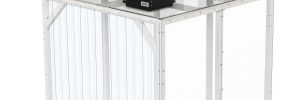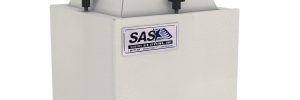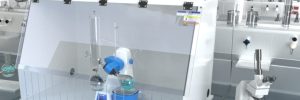
In 2016, our VP of Sales and Marketing, Omar Ilsever, donated a 30” Ductless Fume Hood to the Forensic Science Department at the Sam Houston State University (link to old blog). This hood gave them 9 years of reliable service and was still working perfectly, but we decided to upgrade their department to our improved… Learn More

 Made in the USA
Made in the USA






